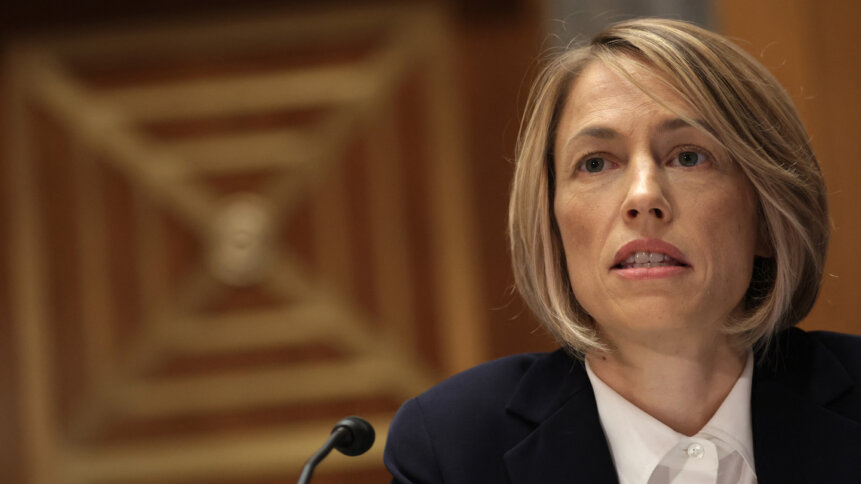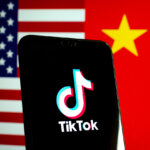“Ban TikTok!” demands FCC Commissioner

The ongoing wrangle over TikTok’s handling of data – and in particular, its base in China, where the government is able to demand any data it wants – has taken a new and initially preposterous turn. No less an authority than Brendan Carr, an FCC commissioner, has said the US government should simply ban TikTok from operating in the United States, rather than trying to agree a plan that would allow it to keep running while attempting to guarantee the safety of US users’ data shared with the platform.
A watertight deal
In an interview with CNN, the commissioner cast doubt on there being a way forward that would allow TikTok to operate while delivering such cybersecurity safeguards as the Committee on Foreign Investment in the United States is looking for.
“Perhaps the deal CFIUS ends up cutting is an amazing, airtight deal, but at this point I have a very, very difficult time looking at TikTok’s conduct thinking we’re going to cut a technical construct that they’re not going to find a way around,” he explained.
He did not elaborate on what conduct of TikTok’s led him to his conclusion.
While there is a natural and understandable worry about personal data falling into the hands of the Chinese government, the recent hardening of the US’ stance towards China, particularly in the technological sphere, has led to lawmakers demanding guarantees from TikTok and its parent company, ByteDance, that US user data will not be accessible by China-based employees – and therefore, potentially the Chinese government. When asked what especial fears the government has when it comes to the Chinese government accessing US user data, the government claims the user data could be used either to find potential targets, potential agents, or potential pro-China influencers for future mis- or disinformation campaigns.
The perceived dangers of TikTok
Certainly, against many of the laws of reason, TikTok influencers are a real thing, but there seems to be quite a gulf between “Check out this cute handbag” and “This new groove is downloadable now,” and “Rise up against the Imperial West, o puppets of capitalist oppression!” It’s a gulf that can’t help but make the US government’s position sound a little ridiculous at best, and actively Sinophobic at worst.
It’s also a position that ignores the appalling record of US-based social media and technology companies when handling user data in recent years. Google and Meta in particular have been handed record-breaking fines time and time again by data watchdogs in Europe for both accidental and negligent misuse of data. Instagram (owned by Meta) was recently fined for exposing the data of teenagers, and Facebook is currently the subject of a class action suit for its acquisition and misuse of users’ medical data. There is of course no governmental imperative to make these companies act against the data integrity interests of the people who use their platforms. They just do it because they can – but apart from a Congressional interview with Mark Zuckerberg three years ago over how the company prioritized profits over the safety of its users, there has been little governmental concern anywhere near as strident as that reserved for TikTok.
The simple solution
In recent months, the CFIUS has been trying to reach an accommodation with TikTok that will soothe the ruffled feathers of lawmakers who see China increasingly as both an economic and a geopolitical competitor, while not outraging the millions of US TikTok creators and viewers who depend on the site for income and distraction.
When asked whether TikTok could commit to restricting data flows so that US user data would not end up in China, TikTok Chief Operating Officer Vanessa Pappas declined to comply, but assured lawmakers the results of the company’s ongoing dialog with the government would “satisfy all national security concerns.”
Commissioner Carr’s suggestion that TikTok simply be banned in the US has, it should be stated unequivocally, no legal weight, and TikTok was quick to clarify that.
“Commissioner Carr has no role in or direct knowledge of the confidential discussions with the US government related to TikTok and is not in a position to discuss what those negotiations entail,” the company said.
The issue of an engaged online community
It is also true that while the call may deliver a little political red meat by seeming like a simpler solution than the ongoing negotiation of a mutual agreement on data flows, there is an irony to it, given that TikTok is not available in China – by order of the Chinese government.
It’s also unclear, in a country where VPNs and other downloads to circumnavigate national data access restrictions are common, whether TikTok would need to “find a way around,” any deal that is eventually done.
It is far more likely that a nation of (especially) millennials and Gen Z users would actively seek out their favorite platform because of the value it adds to their lives. The likelihood of any US legal measures to restrict access to a mostly worldwide platform being successful when pitted against the wits of a clued-up, digitally literate generation of content creators and viewers are almost vanishingly small, and would probably be viewed with the same contempt as the patrons of speakeasies displayed towards Prohibition in the 1920s.
What’s at least as important, any outright ban would be as paradigm-shifting as, for instance, banning US users from using Google, and would be seen to put the US at a digital disadvantage.
Negotiations with TikTok continue…










